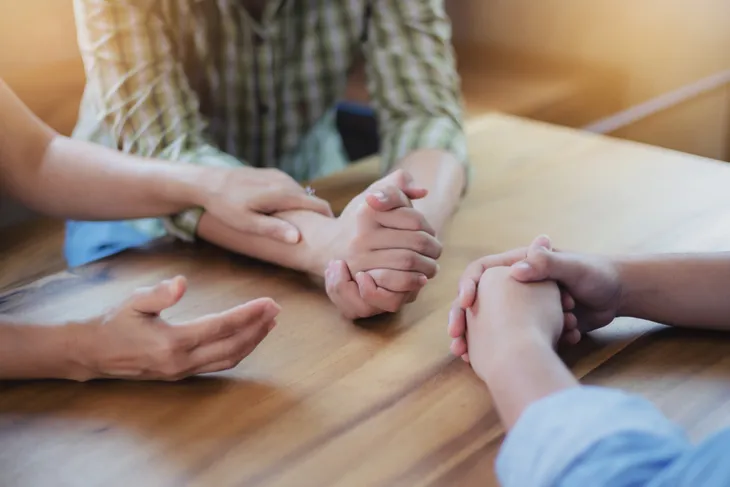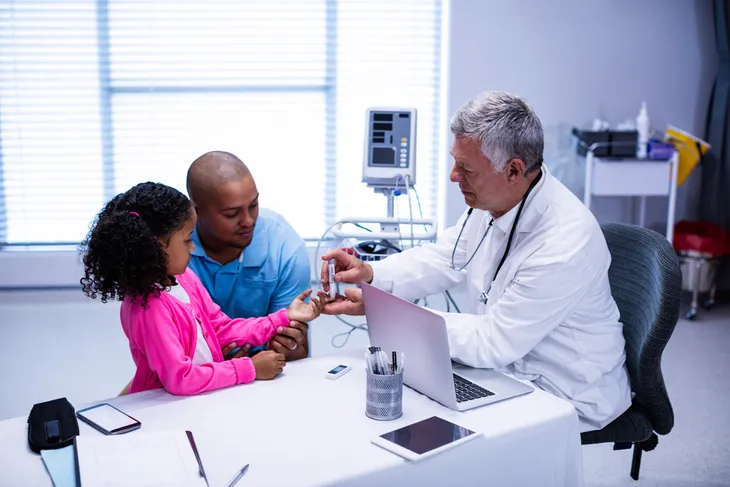The CDC estimates that nearly 1.6 million Americans have type 1 diabetes. This includes 187,000 children and adolescents. All parents want their children to be happy and healthy, so when a child is diagnosed with diabetes it can be really stressful and overwhelming. But it’s important to remember that with the right medication and nutrition plan, type 1 diabetes is manageable.
You’ll get through it! As proof to this, Tom Karyla is the father of two children with diabetes, is sharing his experience as a parent of a child with diabetes. He’s been through the ups and downs of this process and come out the other side. He’s sharing what he’s learned along the way, particularly in the beginning, for parents who are currently struggling with their child’s diagnosis. Here are some tips from Tom on ways parents can better cope with a child that has diabetes.
Want diabetes content delivered straight to your inbox? Sign up for our Diabetes newsletter and receive exclusive news and articles written from our team of diabetes experts.
When Newly Diagnosed
The only thing that should matter for the first months after diagnosis is you understanding this disease. Avoid social media as there will be much time in the future to connect with others. Don’t bounce from one conversation to another saying, “perhaps I should try that” or “that sounds like a good idea”; literally you will drive yourself crazy. You will come to find that what you hear from others does not necessarily work in your household. Learn from your medical team. Stay in a dialogue with your spouse. Stay connected to your child.
Once you have a firm grip of the terminologies and the standards that work well with your child, you can seek input. If one sits in a cockpit of an airplane for the first time surrounded by people giving their opinions, the pilot has no idea how to differentiate anything as they don’t even understand the basics of the airplane. Dealing with diabetes is the same thing. All of the things before you are confusing because you just do not know yet what everything is about…….but you will. Avoid people sharing their ‘expertise’ on social media, but first; work with your medical team, spouse, and most importantly; your child.
Facing Your Family
My goodness how we love our family and all they have to offer. They will have much advice and expect a statement or two that will make you cringe. The way to counteract that is to first of all, fully understand, and accept the fact that you and/or your child did nothing to be diagnosed with type 1 diabetes. Really know this because the comments will come.
There is really nothing that you could do to prevent the onset of type one diabetes. The relative that took my arm and smiled at me saying they “….knew exactly what we are going through because her precious dog was diagnosed two years earlier….” Was enough to test anyone’s patience. If you are asked a question early on, just explain that you are still new and learning but the one thing YOU DO KNOW is that this is an autoimmune disease and nothing could have really been done to prevent it.
Spouse
Years ago I headed a support group where we asked the moms what was the one thing they wished for? Over 90-percent stated they wished their spouse would do more in dealing with their child’s diabetes care. When we asked the dads the same question, over ninety percent said, they wished their spouse would allow them to do more in dealing with their child’s diabetes care.
Don’t assume the other knows what to do or should know what to do. We ALL KNEW LITTLE if anything at all. Do not be afraid to share with your spouse, “I don’t know”. But that’s not an excuse for you to bail on your child’s care, it should be followed with teach me, or let’s figure it out together.
Dialogue is Crucial
When it became clear that both of us holding a job was just not going to work out, neither one of us ‘just assumed’ the other would stay home. We knew that one of us was going to give up something they loved but we both knew it was for something we both loved more. Our situation is not your situation and no two situations are the same. Discuss, communicate, work it out.
I had to come to learn that while I was out working, Jill was home working just as much. It was important for us to both understand and accept the importance of our roles. I didn’t assume that the dishes would get done by themselves nor that dealing with Kaitlyn’s diabetes management was any less up to the two of us. When I was home, I made sure I took on checking blood sugars and injecting medications.
Spend Time as a Couple
Now each relationship is deeply personal and I’m surely not one to dole out advice, but try to make sure you get away. At first it was just a walk around the block while a neighbor came over and soon, we found a babysitter who had diabetes so we could go out for the evening. I still remember our first few ‘date nights’ we were too scared and parked around the block, opened up a few sodas, turned on the radio, and just talked. It was these ‘baby steps’ that set the foundation for both of us to grow.
It all takes time, but you will get there, we all do. Look back and see how much you grew in just the prior seven days. Give yourself a break. Mistakes will be made. But rest easy as I can assure you that no one made more mistakes than I at this thing called diabetes and so far, my kids are doing GREAT!
I am a DiabetesDad.








